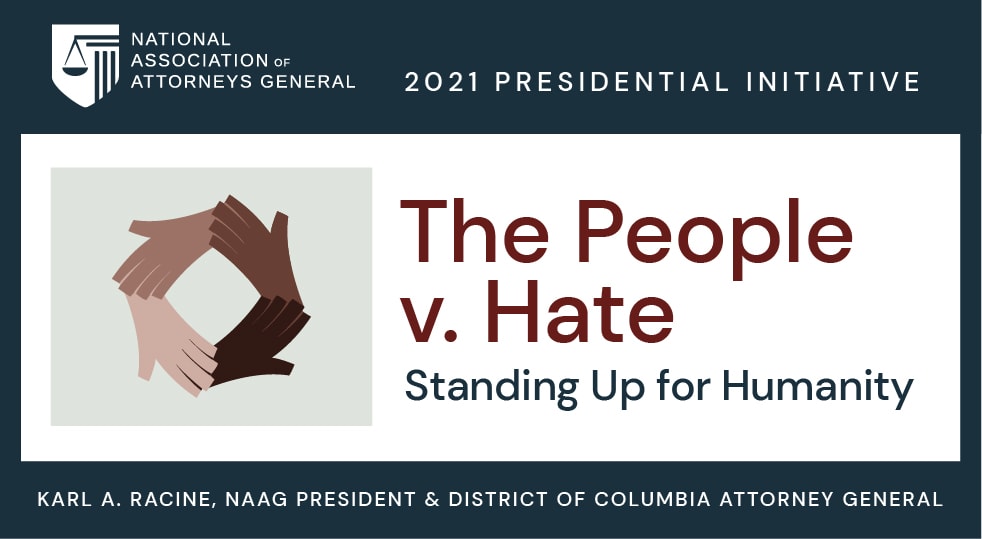
2020 Virtual Capital Forum
VirtualThe NAAG Capital Forum is hosted annually in Washington, D.C. bringing together attorneys general to meet with federal officials, discuss important policy issues, and learn about the latest legal developments.

The Future of Qualified Immunity in Civil Rights Litigation
VirtualThe Future of Qualified Immunity in Civil Rights Litigation is the third webinar in the NAGTRI Civil Rights Webinar Series. In this webinar, we will discuss the role of the qualified immunity doctrine in civil rights litigation, the legal and policy arguments for and against qualified immunity, and efforts to reform qualified immunity at both…

Paralegal
VirtualThis NAGTRI national training will focus on teaching participants how to improve their verbal and written communication skills, and explore technological resources that can be used in paralegal work. In the first segment, attendees will learn about factors that affect communication with attorneys and co-workers and will receive suggestions for improving those skills. The second…

Navigating the New Title IX Regulations
VirtualNavigating the New Title IX Regulations is the fourth and final webinar in the NAGTRI Civil Rights Webinar Series. In this webinar, we will discuss the new Title IX regulations that recently went into effect, and the significant implications for state universities and other clients of the attorney general community. This webinar examines those changes,…

Legal and Policy Implications for COVID-19 Vaccines
VirtualThis intensive, online training consists of on-demand lessons covering various aspects of COVID-19 vaccines, followed by a live, three-hour online session where participants will explore possible legal implications of the Food & Drug Administration's (FDA) approval of COVID-19 vaccines. The on-demand lessons will consist of videos, PowerPoint presentations, and handouts for participants to prepare for…

Trial Advocacy
VirtualThis intensive, online advocacy course consists of eight on-demand lessons covering different aspects of trial advocacy, followed by a live, four-day online session where participants will various trial skills based on a fictional case file. The on-demand lessons consist of videos, PowerPoint presentations, handouts, and self-work for participants to prepare for the live session. Pre-work…

2021 NAGTRI Advisory Board and Training Coordinator Meeting
The 2021 NAGTRI Advisory Board and Training Coordinator Virtual Meeting will include updates on NAGTRI training, as well as collaborative sessions to discuss the biggest issues impacting the training needs in your office and how NAGTRI can best meet these evolving needs. The meeting will take place online on Wednesday, January 27, 2021 from 1:00…

Thriving in a Remote Workplace, Part IV: From Crisis to Balance – Maintaining Equanimity in the Face of Uncertainty
This webinar will look at how we can transition from managing crisis to a more balanced approach that will serve us in the face of continued uncertainty.

Cybercrime Investigations: A Comprehensive View from Two Former Prosecutors
Individuals and organizations in every state are at risk from constantly-evolving forms of cybercrime. Yet most cybercrimes go without criminal investigation or response. State attorneys general can play a critical role in increasing and improving our shared response to cybercrime. Statewide reach, as well as the ability to coordinate with local and national agencies, place…

State of Hate in America: A Black History Month Fireside Chat
Join NAAG President and District of Columbia Attorney General Karl A. Racine as he kicks off his 2021 Presidential Initiative, "The People v. Hate: Standing Up for Humanity" with a webinar on Feb. 25 from 3:15 p.m. to 4:00 p.m. ET. This webinar, in celebration of Black History Month, will feature a virtual "fireside chat"…

Crisis Standards of Care During the COVID-19 Pandemic: Legal and Policy-Related Issues
VirtualAs various regions of the the United States have and could continue to experience COVID-19-related surges in cases, hospitals and other providers have reported scarcity in essential resources (e.g., available intensive care unit (ICU) beds, personnel, treatments, and personal protective equipment (PPE)). In response, providers as well as state, territorial, and local health authorities have…


